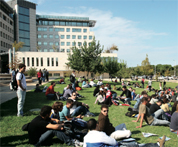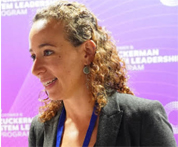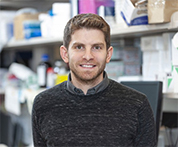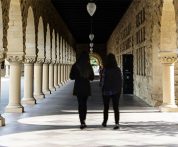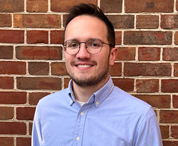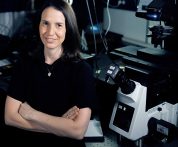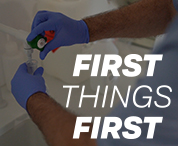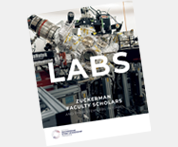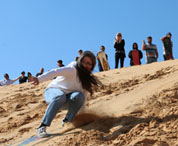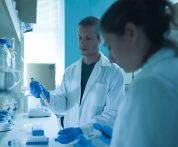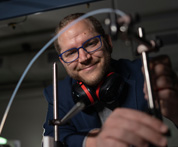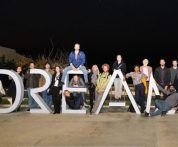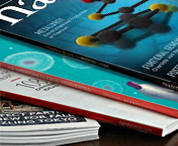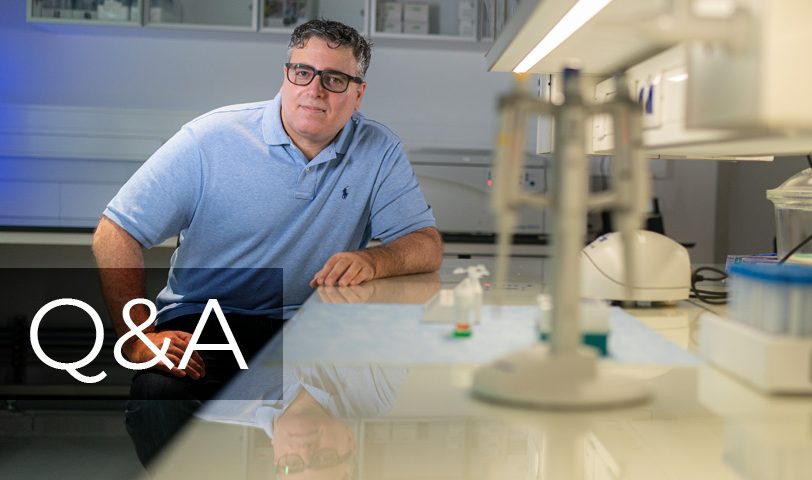Dr. Yossi Weizmann is an Associate Professor in the Department of Chemistry, Ilse Katz Institute for Nanoscale Science and Technology, at Ben Gurion University of the Negev. Research in the Weizmann combines the multidisciplinary fields of biology, chemistry, nanotechnology, and materials science. This exciting frontier creates unparalleled opportunities to design groundbreaking advances in medical diagnostics and research platforms.
Dr. Weizmann is co-founder of Sensona Inc., whose technology provides express molecular analysis to facilitate diagnosis and treatment of infectious diseases. He is listed on seven patents and is the recipient of prestigious long-term grants from the National Science Foundation and the Israel Science Foundation.
Please describe your current research, the focus of your lab, and the practical implications of your research
The programmable nature of DNA has re-established its use as a powerful building material for the construction of precisely defined 2D and 3D nanoscale assemblies. In our lab, we combine synthetic nucleic acid with diverse nanoparticles to create hybrid materials that help solve real problems.
Nucleic acids are the heart of the lab. We can program them for different applications, design a unique shape from DNA or RNA, and use it to study biological processes. For example: When the replication process of DNA is initiated, the double helix is separated, it creates a string of crumpled DNA, or what we call a supercoil. In principle, this topological state will block the replication process. Based on this, in the lab, we design topological structures that mimic this situation to study the interaction of enzymes and DNA, with the hope in the future to find antibacterial drugs.
Working in materials science – we synthesizing nanoparticles made of gold, for example metallic nanoparticles have unique properties, when light is shined on them, heat is released, and their absorption are related to their size and shape. Therefore, by controlling the light, we can control heat and temperature and create very fast reactions. The technique of manipulating the polymerase chain reaction (PCR), has been used for some time, but has involved bulky, time-consuming, and costly equipment. Our newer methods are more accurate and allow the thermocycles associated with PCR to take seconds rather than minutes, and use LED energy to miniaturize, enabling portable devices.
We use DNA to design biosensors that detects viruses much more quickly. We can finish a PCR test in two minutes instead of 30. Think of it as a microwave versus a regular oven. We believe this can be a game-changer in controlling biological processes. For example, COVID detection could be completed in less than eight minutes and housed in an efficient and affordable device that could be installed in airports, schools, etc.
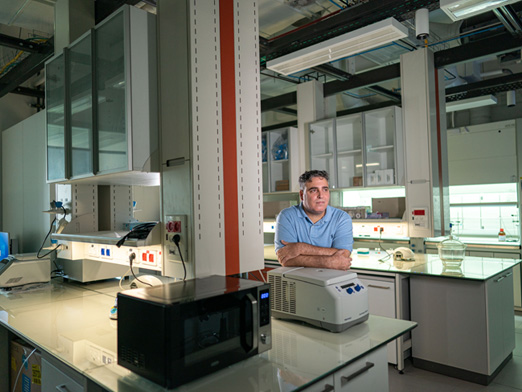
What do you enjoy most about what you do/your research!
Everything!
What inspired you to pursue this area of research?
I want to create something that will not only be fundamental, but something that will be applicable and of use to many people. If I create something that impacts people, then I actually did something practical and useful.
What does it mean to you to be part of the Zuckerman Faculty Scholars Program?
The Zuckerman Program is a great thing. They have selected the best faculty all over Israel, and it has meant a lot to me to be part of something very special. Israel has great scientists and students. The program encourages collaboration. Today it is very hard to complete a very good project without collaboration, and I believe it is very productive and healthy to do that.
Where do you hope your research will have the greatest impact?
I hope we can impact the fields of biomedicine, not just to find antibacterial drugs, but to understand how DNA interacts with cell; biology, to learn more about RNA and its importance for cell regulation; and in the materials science field, we aim to create materials that help improve everyday living.
 ISRAELI COUNCIL FOR HIGHER EDUCATION
ISRAELI COUNCIL FOR HIGHER EDUCATION MIT-Israel Zuckerman STEM Fund for Faculty Collaboration
MIT-Israel Zuckerman STEM Fund for Faculty Collaboration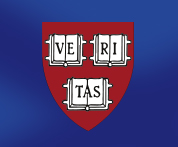 The Zuckerman Travel and Research STEM Fund at Harvard
The Zuckerman Travel and Research STEM Fund at Harvard Zuckerman AI Fund at Technion
Zuckerman AI Fund at Technion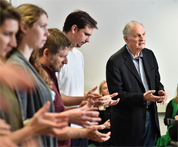 Alan Alda Communicating Science
Alan Alda Communicating Science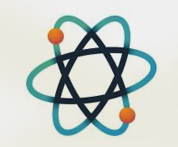 Zuckerman Institute – ScienceAbroad
Zuckerman Institute – ScienceAbroad Zuckerman Institute – America-Israel Friendship League partnership
Zuckerman Institute – America-Israel Friendship League partnership



